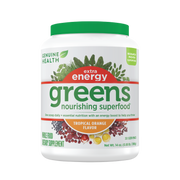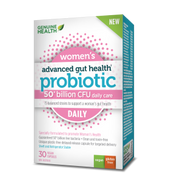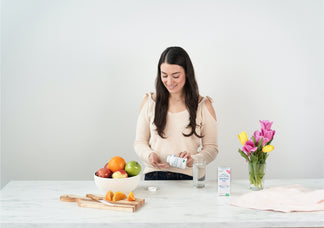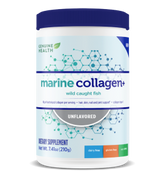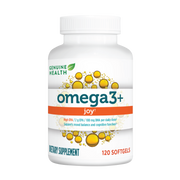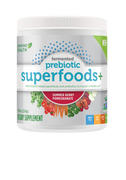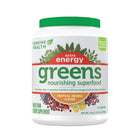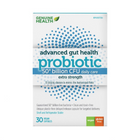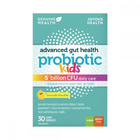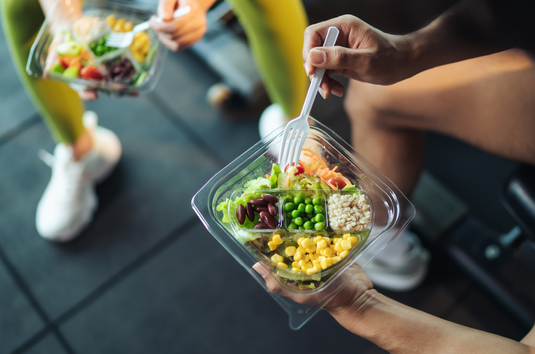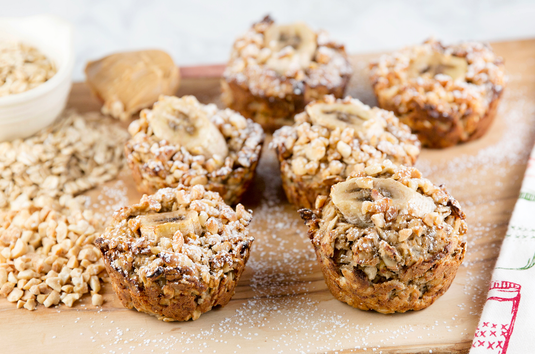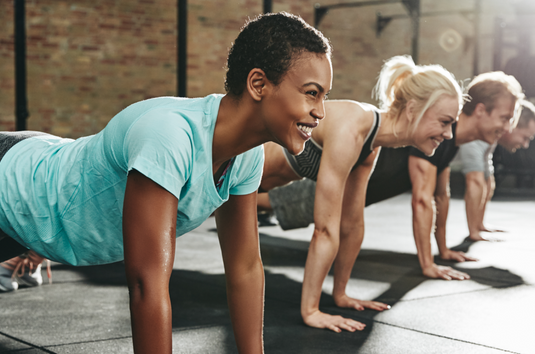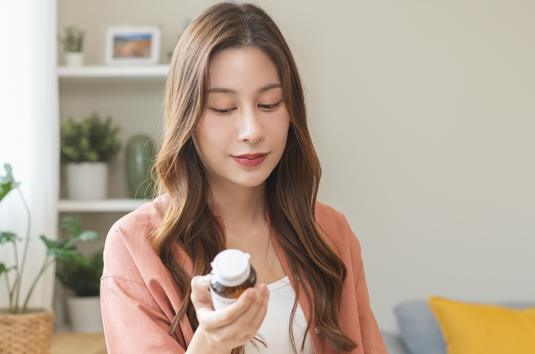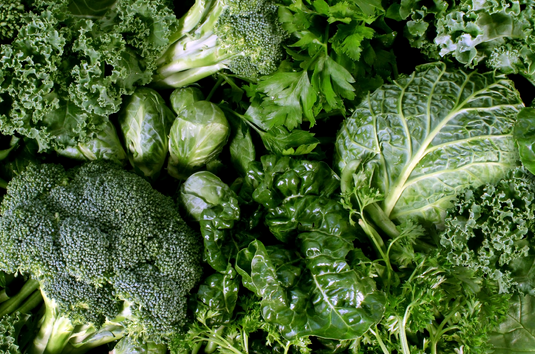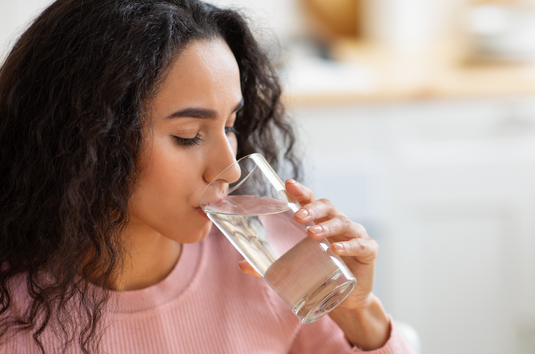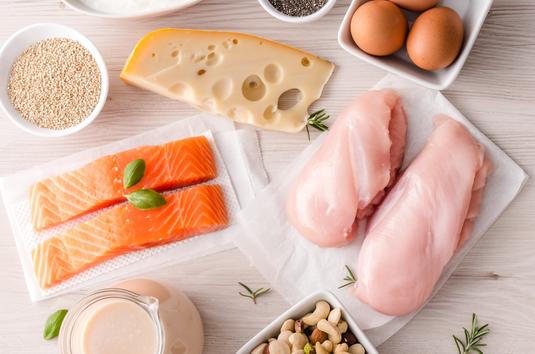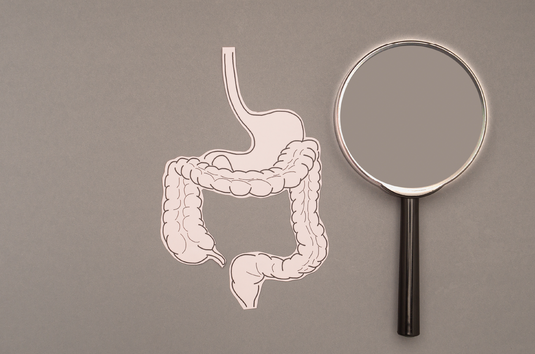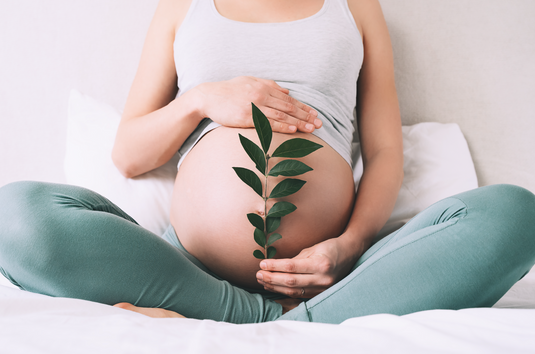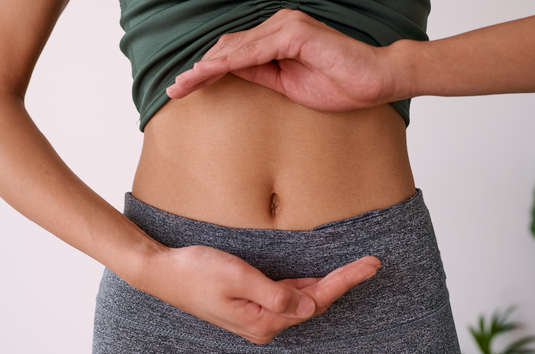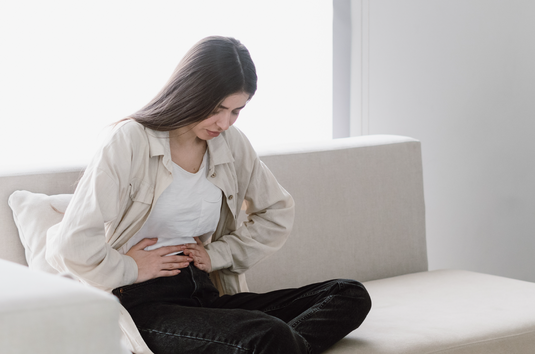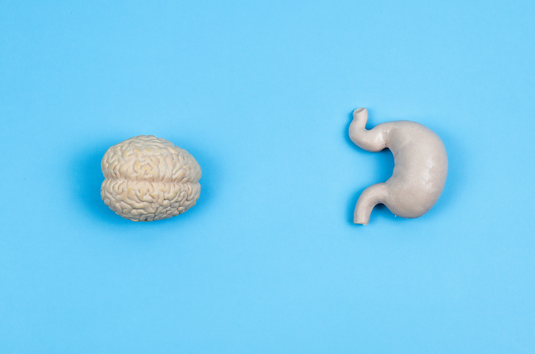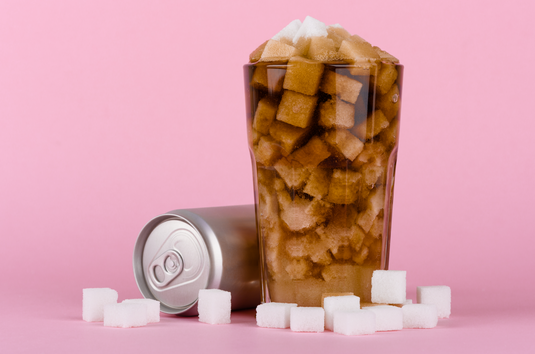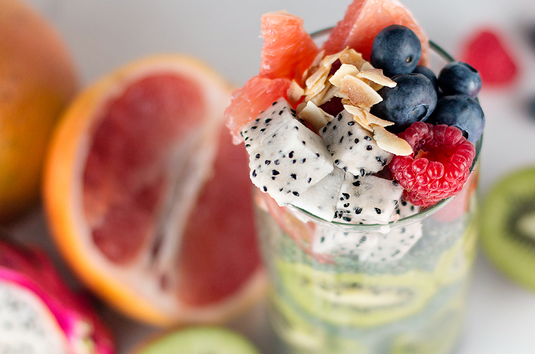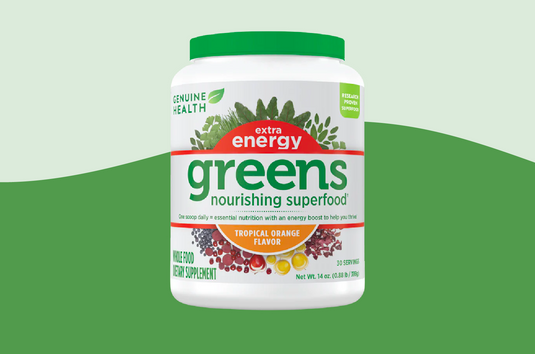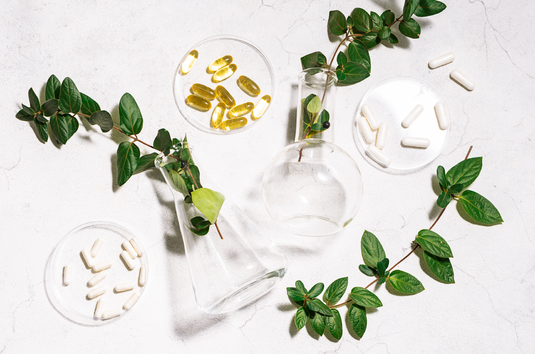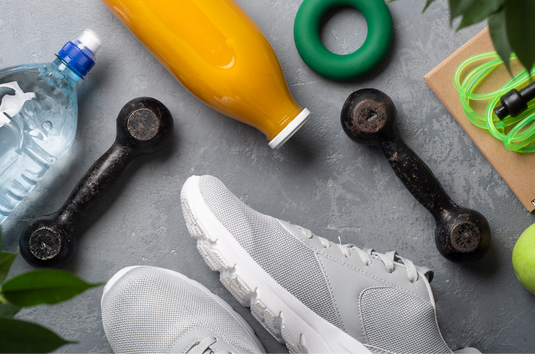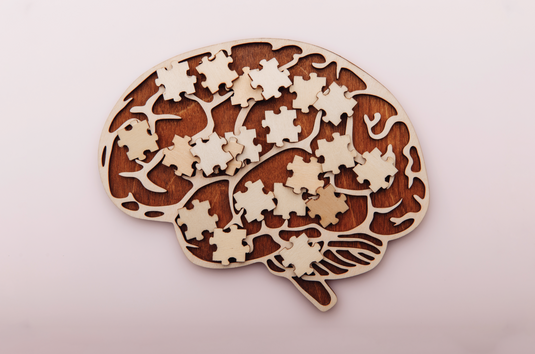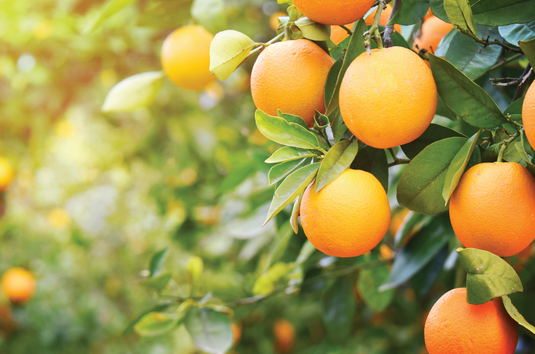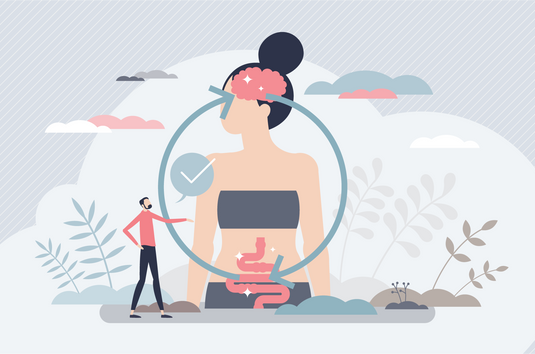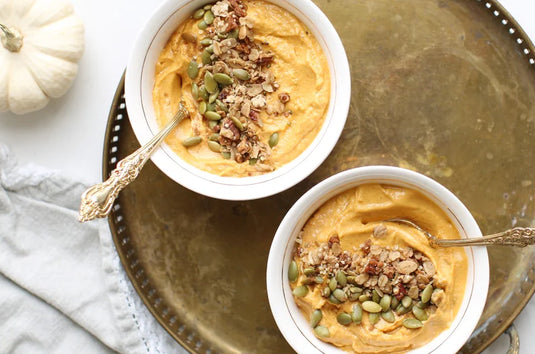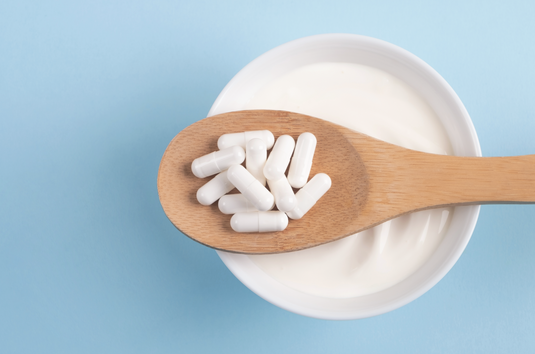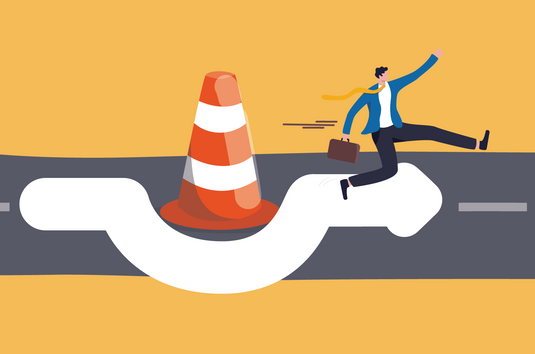6 Ways to Keep Your Bones Strong
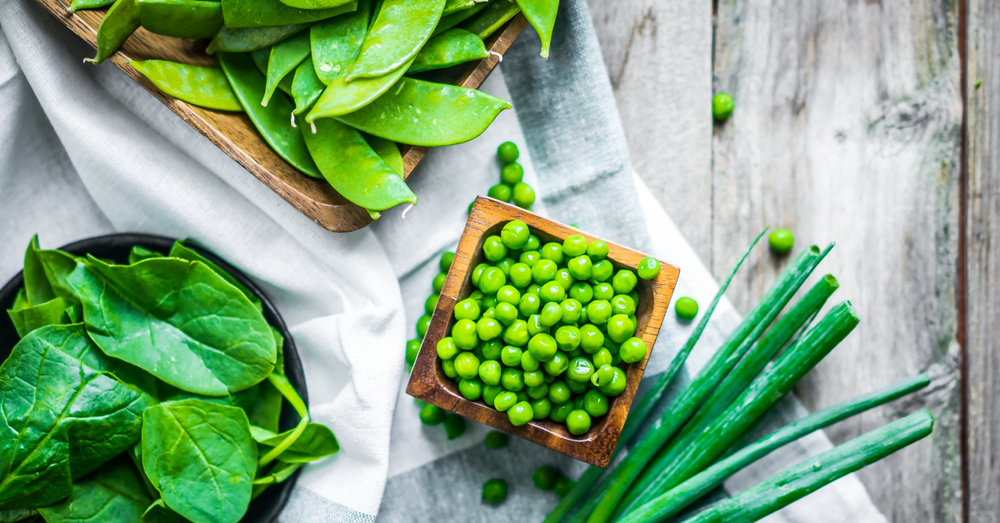
Our bones are our support system. They hold us upright, protect our internal organs, and help us move our wonderfully healthy body. But did you know that we begin to lose bone mass in our mid-thirties – and that men and children are also at risk? Fortunately – there are steps that you can take to support optimal bone health.
We often think of bones as these inert structures – rigid and solid, not really changing after we are finished growing. In reality, our bones are extremely metabolically active and in a constant state of flux depending on our body’s mineral needs. Whenever something is metabolically active, free radicals form – this means that we need a good supply of antioxidants to help stabilize them before they can do any lasting damage. Eating a colourful diet full of all the orange, red, blue, and purple foods is key to providing your body with a wide variety of antioxidants. fermented organic gut superfoods+, made with 22 fermented superfoods like organic cabbage, cauliflower, kale, grape, pomegranate, bitter melon and sea buckthorn, is rich in phytonutrients that can help to protect bone from damaging oxidative stress and curb osteoclast activity†. And don’t forget to include mineral-rich leafy greens and sea veggies regularly to ensure you are building up alkaline reserves to protect your bones. When the diet is too acidic, minerals are drawn from bones to maintain a proper blood pH†.
Did you know that many staples in the North American diet can also inhibit calcium absorption? To maximize calcium absorption it’s not just what we eat, but what we don’t eat. Here’s how to maximize the calcium that you do consume: Avoid excess protein, sugar, grains, salt, alcohol, black tea, coffee and soft drinks in the diet, which have all been shown to deplete the body of its calcium stores, and weaken bone tissue.
Nobody’s perfect, and even some of the healthiest foods out there have a flaw: anti-nutrients. Anti-nutrients are compounds that can block the absorption of important bone-building minerals. Nuts, seeds, grains, and legumes are the biggest offenders, but by sprouting, or better yet fermenting these foods – you unlock their nutrient potential and break down those pesky anti-nutrients. Additionally, maintaining a proper colon pH by consuming probiotic rich-foods or a probiotic supplement will aid in mineral absorption.
Another powerhouse for bone health is collagen! Collagen is responsible for the strength and stability of body tissues. Similar to the way that we start to lose bone mass in our 30s, our collagen production begins to decline in our 20s. This loss of collagen can affect our bones—but supplementing with collagen+ can help prevent this loss. One study found that collagen peptides improved bone mineral density and bone markers and reduced degradation in postmenopausal women[i].
You could be eating a near perfect diet and supplementing religiously, but if you are under constant stress, you may be prone to higher levels of acidity, which we learned earlier can result in bone loss. Also, elevated cortisol levels can initiate collagen breakdown and inhibit osteoblasts, leading to decreased bone density. As long as the body remains under stress, without adequate rest and repair, bone mineralization and collagen formation will be reduced.
We all know that staying active is good for your heart and keeps muscles strong and flexible, so it’s no surprise that your bones love exercise too! But not just any type will do, weight-bearing and strength-training exercise is what our bones really crave. Activities like jogging, walking and stair climbing are great for bones, along with lifting weights, yoga and squats.
The time is now to make sure you are optimizing your nutrition and lifestyle to do all you can to protect your bones into your old age.
Resources:
[i] Konig, et al Specific Collagen Peptides Improve Bone Mineral Density and Bone Markers in Postmenopausal Women-A Randomized Controlled Study. Nutrients. 2018 Jan 16;10(1). pii: E97
Eat the rainbow
We often think of bones as these inert structures – rigid and solid, not really changing after we are finished growing. In reality, our bones are extremely metabolically active and in a constant state of flux depending on our body’s mineral needs. Whenever something is metabolically active, free radicals form – this means that we need a good supply of antioxidants to help stabilize them before they can do any lasting damage. Eating a colourful diet full of all the orange, red, blue, and purple foods is key to providing your body with a wide variety of antioxidants. fermented organic gut superfoods+, made with 22 fermented superfoods like organic cabbage, cauliflower, kale, grape, pomegranate, bitter melon and sea buckthorn, is rich in phytonutrients that can help to protect bone from damaging oxidative stress and curb osteoclast activity†. And don’t forget to include mineral-rich leafy greens and sea veggies regularly to ensure you are building up alkaline reserves to protect your bones. When the diet is too acidic, minerals are drawn from bones to maintain a proper blood pH†.
Reduce intake of calcium inhibitors
Did you know that many staples in the North American diet can also inhibit calcium absorption? To maximize calcium absorption it’s not just what we eat, but what we don’t eat. Here’s how to maximize the calcium that you do consume: Avoid excess protein, sugar, grains, salt, alcohol, black tea, coffee and soft drinks in the diet, which have all been shown to deplete the body of its calcium stores, and weaken bone tissue.
Mind your gut
Nobody’s perfect, and even some of the healthiest foods out there have a flaw: anti-nutrients. Anti-nutrients are compounds that can block the absorption of important bone-building minerals. Nuts, seeds, grains, and legumes are the biggest offenders, but by sprouting, or better yet fermenting these foods – you unlock their nutrient potential and break down those pesky anti-nutrients. Additionally, maintaining a proper colon pH by consuming probiotic rich-foods or a probiotic supplement will aid in mineral absorption.
Another powerhouse for bone health is collagen! Collagen is responsible for the strength and stability of body tissues. Similar to the way that we start to lose bone mass in our 30s, our collagen production begins to decline in our 20s. This loss of collagen can affect our bones—but supplementing with collagen+ can help prevent this loss. One study found that collagen peptides improved bone mineral density and bone markers and reduced degradation in postmenopausal women[i].
Reduce stress
You could be eating a near perfect diet and supplementing religiously, but if you are under constant stress, you may be prone to higher levels of acidity, which we learned earlier can result in bone loss. Also, elevated cortisol levels can initiate collagen breakdown and inhibit osteoblasts, leading to decreased bone density. As long as the body remains under stress, without adequate rest and repair, bone mineralization and collagen formation will be reduced.
Exercise
We all know that staying active is good for your heart and keeps muscles strong and flexible, so it’s no surprise that your bones love exercise too! But not just any type will do, weight-bearing and strength-training exercise is what our bones really crave. Activities like jogging, walking and stair climbing are great for bones, along with lifting weights, yoga and squats.
The time is now to make sure you are optimizing your nutrition and lifestyle to do all you can to protect your bones into your old age.
Resources:
[i] Konig, et al Specific Collagen Peptides Improve Bone Mineral Density and Bone Markers in Postmenopausal Women-A Randomized Controlled Study. Nutrients. 2018 Jan 16;10(1). pii: E97



